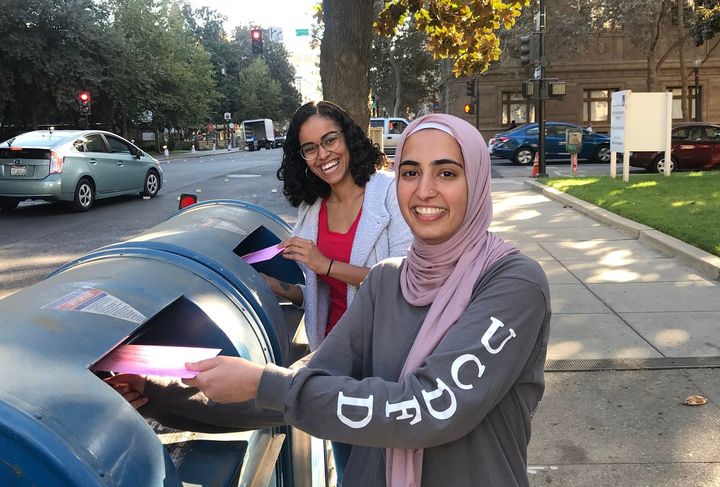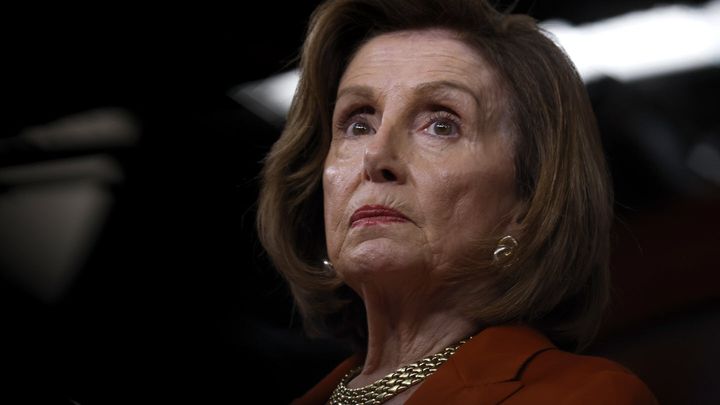This week, President Trump tweeted an attack on Michigan Secretary of State Jocelyn Benson for sending out applications for absentee ballots to registered voters during the coronavirus pandemic, falsely claiming, “This was done illegally…” and threatening retribution.
Benson’s response affirmed the legality of sending applications to all Michigan voters, noting that Republican secretaries of state had taken the same step in Iowa, Georgia, and West Virginia. She could have gone on to add the examples of Republican-controlled states Idaho, Nebraska, South Dakota, and West Virginia, all of which are proactively mailing applications for absentee ballots to voters.
Prompted by the contagious coronavirus, state governments have gradually been expanding access to voting by mail, whether by dropping requirements that voters provide excuses for requesting absentee ballots, mailing applications for absentee ballots to every registered voter, or in the case of California, mailing absentee ballots proactively to all voters.
Trump’s tweet comes as congressional Republicans keep up their opposition to the HEROES Act, the latest coronavirus relief package passed by House Democrats on May 15, which includes $3.6 billion in funding for election infrastructure in states, including expanded vote by mail. The public policy institute Brennan Center is tracking the status of vote-by-mail preparations in states nationwide and highlighting falsehoods around the practice.
Election experts told NBC News that $400 million for state elections allocated in March’s CARES Act was insufficient to the coming demand for vote-by-mail and safe polling locations, and that greater funding was needed for election integrity. But this week the Republican-controlled Senate left for Memorial Day recess without taking up the HEROES Act. They won’t consider the bill until next week at the earliest—and out of the $3 trillion total bill, Senate Republicans strongly oppose the bill’s 1.2 percent allocated for election assistance and national rules requiring vote-by-mail access due to the pandemic.
Three states that last month were still debating expanding vote-by-mail access during the pandemic have each recently taken their own steps to making absentee voting more accessible.
In Connecticut, Democratic Gov. Ned Lamont signed an executive order on May 20 stating that all voters should be able to vote absentee. Secretary of State Denise Merrill had announced on May 4 that she would send a request form to every voter for the primary to be held August 11. Last month, expanding absentee voting had been opposed by Republicans in the state legislature as a Democratic wish-list item, though in fact vote-by-mail has been found to have strong bipartisan support—up to 65% of Republicans said they support a requirement for a vote-by-mail option, according to a national Reuters poll conducted in early April 2020.
In Kentucky, Democratic Gov. Andy Beshear and Republican Secretary of State Michael Adams agreed on an executive order, signed April 24, to reduce the steps typically required to request an absentee ballot. The state Board of Elections is establishing an online portal where voters can fill out an application ahead of the delayed primary election on June 23, instead of needing to mail a completed request form—though as of this week, the new portal is still in development, and updated instructions do not yet appear on the state’s elections website.
Last week, South Carolina joined 10 other states that had increased vote-by-mail access in response to the pandemic by dropping the usual “excuse” requirement on their books for absentee ballot requests and creating an online application portal. The state’s action came as a lawsuit on the matter brought by major Democratic groups was pending before the state’s Supreme Court. The state’s Election Commission spokesperson said earlier this week they had already broken the state’s record for absentee voting in a primary, with several weeks of absentee voting still remaining before the June 9 primary.
The Failing Five
Five state governments continue to resist making even temporary exceptions to absentee ballot requirements during the coronavirus public health crisis.
In Louisiana on May 19, a House committee led by Republicans rejected a bill introduced by New Orleans Democratic Rep. Mandie Landry to allow any registered voter to request an absentee ballot, in a 9-5 vote along party lines.
In Mississippi—the only state to meet none of the six vote-by-mail preparations tracked by the Brennan Center—Republican Secretary of State Michael Watson announced on May 17 a COVID-19 contingency plan for the state’s elections. A Twitter user in the state who follows voting issues noted that Republican Gov. Tate Reeves did not provide details as to why absentee voting could not be expanded to voters under age 65 for the June 23 primary runoff or November general election.
“I believe for the late June election, we are going to be able to conduct an election in our sate, and that people who choose to go vote and can vote, we’re going to provide PPE for those poll workers,” Gov. Reeves responds. He goes on to say, “I do not believe that going to a full mail-in process is the right thing for us to do in our state, and that’s true whether it’s a pandemic or not a pandemic.”
Mississippi’s absentee ballot rules remain in active litigation from a 2018 suit filed by voting rights groups including the Lawyers’ Committee for Civil Rights Under Law and the Mississippi NAACP.
Last month in Missouri, civil rights groups led by the ACLU of Missouri filed a lawsuit to allow Missouri voters to request absentee ballots using one of the state’s existing excuses (such as illness), which prompted the Republican-majority General Assembly to pass legislation insisting that absentee ballot eligibility rules only apply to previous categories of health risks. As of this week, the legislation is set to be reviewed by the Missouri Supreme Court.
In Tennessee on May 12, the Republican-controlled state Attorney General’s office and the Board of Elections stated that the risks posed by the novel coronavirus do not constitute an excuse for voters to request an absentee ballot for the August 6 primary or the November general election. A coalition of Tennessee nonprofits sued the state on May 1, with Charlane Oliver, co-executive director of The Equity Alliance, saying in a statement, “Tennessee voters should not be forced to choose between their own personal safety and participating in our democratic process.”
Texas is also seeing legal contests over whether all voters should qualify for vote-by-mail ballots, as time ticks by to prepare for expanded vote-by-mail access for the July 14 primary election day and in November. The nonprofit Texas Tribune reports that most recently, the U.S. Fifth Circuit Court of Appeals temporarily blocked a preliminary injunction by a federal district judge that would have allowed any voter to request an absentee ballot; a similar case is pending at the Texas Supreme Court.
Update, May 23: added a link clarifying the date, May 4, that Connecticut Secretary of the State Denise Merrill first announced the state’s election plan in response to COVID-19, the subject of the governor’s executive order this week.



